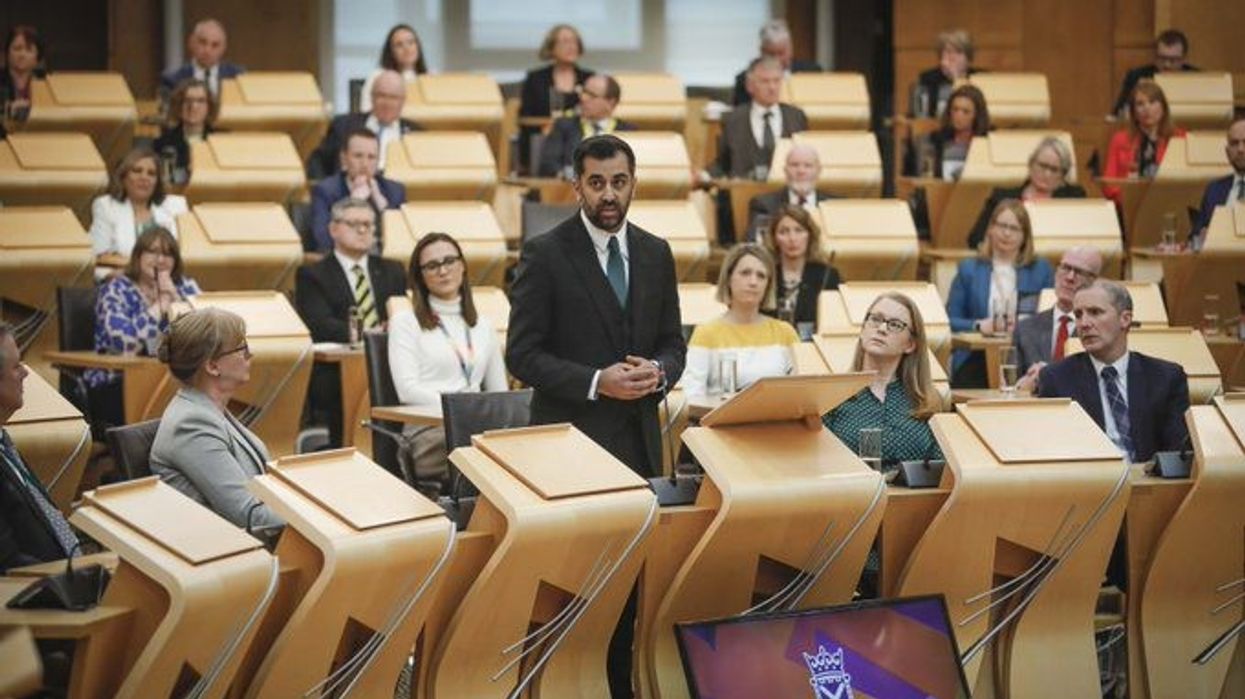Humza Yousaf was sworn in as the first minister of Scotland at the Court of Session following his first night in his official residence, during which he led Ramadan prayers with his family.
In the customary ceremony, Yousaf pledged his allegiance to the King, and to fulfill his duties as the first minister and keeper of the Great Seal of Scotland.
His family observed from the public gallery while he was flanked by Dorothy Bain KC, the lord advocate. The oath was administered by Lord Carloway, the lord president of the Court of Session, who heads the judiciary in Scotland.
During the swearing-in ceremony, Lord Carloway emphasised to Yousaf the importance of the rule of law in maintaining a successful democratic system.
He also emphasised that the government must protect the judiciary from any unjustified attacks.
The night before the ceremony, Yousaf had shared a photo on Twitter of himself, his wife, stepdaughter, daughter, and parents at Bute House, the official residence of the first minister in Edinburgh.
Following the parliamentary vote, Yousaf shared on Twitter two pictures, one of him and his family in Bute House - the official residence of Scotland's First Minister - and another of him leading prayers after the iftar meal during Ramadan.
Yousaf described the moment as "special" and a customary tradition for Muslims to pray together after breaking their fast.
However, there was chaos at Yousaf’s very first appearance at First Minister’s Questions. The debut FMQ session was disrupted by climate protesters, leading to the public being removed from the chamber due to severe interruptions.
The disruptions by activists, who stood up to shout at MSPs, resulted in the session being suspended five times within the first 15 minutes. This is the latest in a series of regular interruptions during the weekly question time.
Yesterday afternoon (30) parliamentary authorities held a meeting to come up with strategies to prevent the disturbances caused by climate protesters during the first minister's questions.
But the ban on mobile phones didn't seem to work as the demonstrations escalated, prompting the need for a new approach.
Following a ban on mobile phones, the protests escalated, with mobile devices being used to film the disruptions and share them on social media.
Suspending broadcasts of the proceedings when disruptions occur has been ineffective. Therefore, it was considered that requiring individuals in the public gallery to lock away their phones may be an effective measure.
After the fifth protest, Alison Johnstone, the presiding officer, requested the police and court officials to remove the spectators who were present in the chamber. “I am very, very sorry,” she said. “We require to clear the gallery at this point.”
The suspension was extended when SNP MSP Stuart McMillan requested that another school group from his constituency be allowed to return to the gallery, following the permission granted to one group of schoolchildren to stay.
Johnstone expressed regret at having to take such action and acknowledged the frequent disruptions, stating that measures were being considered to protect parliamentary business from such incidents.
Johnstone also spoke about her hope for a prompt resolution to the disruption that affected the first minister's questions. She emphasised the need to prioritise the safety and well-being of the public attending the parliament.
Douglas Ross, the Scottish Conservatives leader, did not have a chance to ask his initial question to Yousaf due to the frequent interruptions.
Yousaf concurred with the presiding officer's decision to clear the gallery and expressed his pleasure that the schoolchildren were allowed to stay.
“Can I commend the young people for behaving much better than some of the adults that were in the public gallery,” he said.




